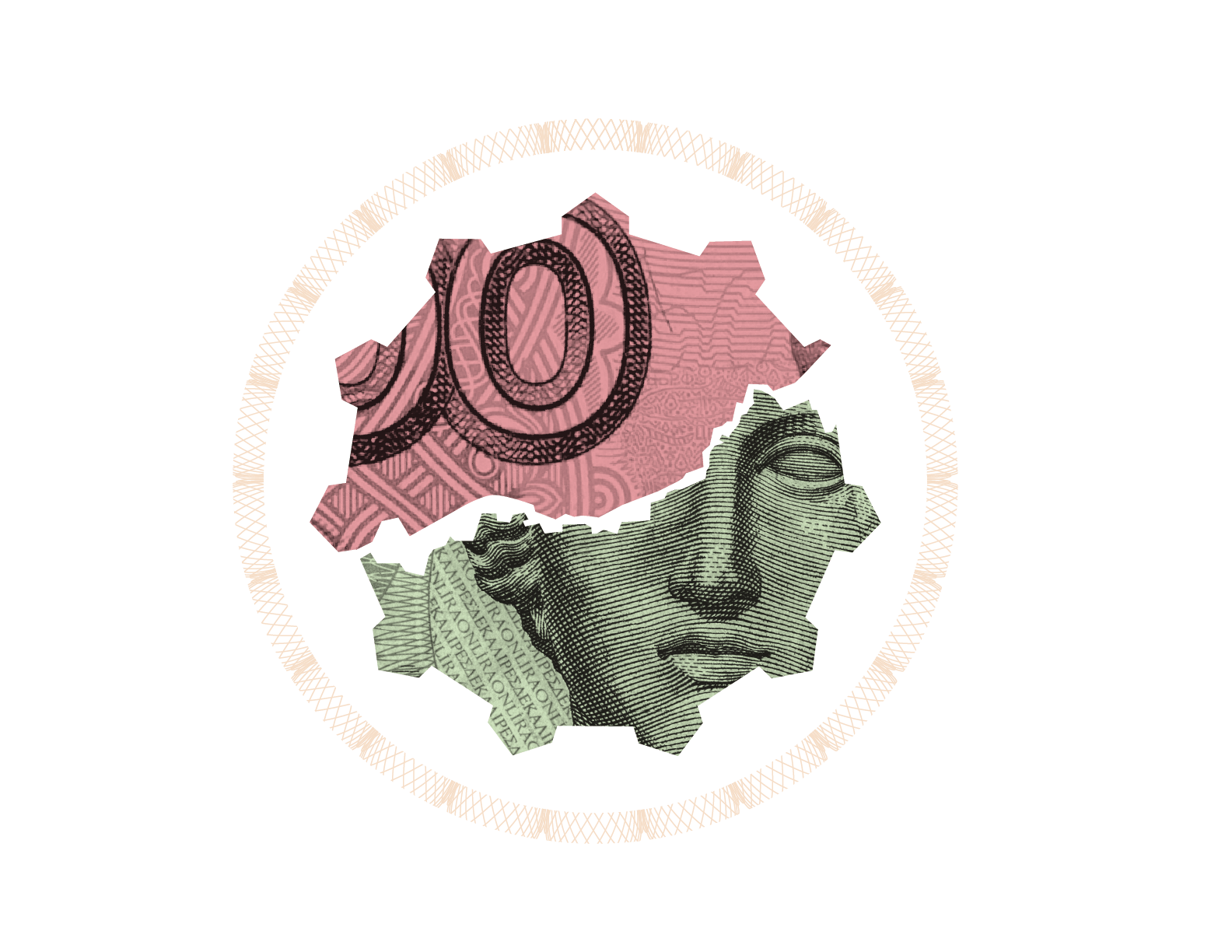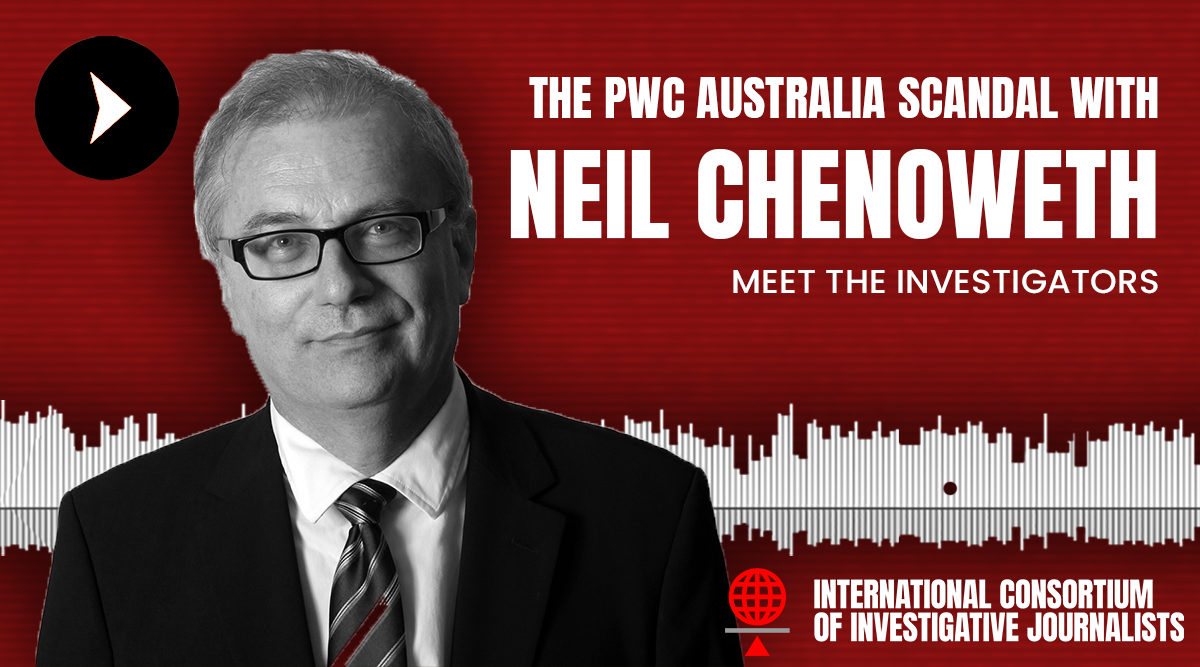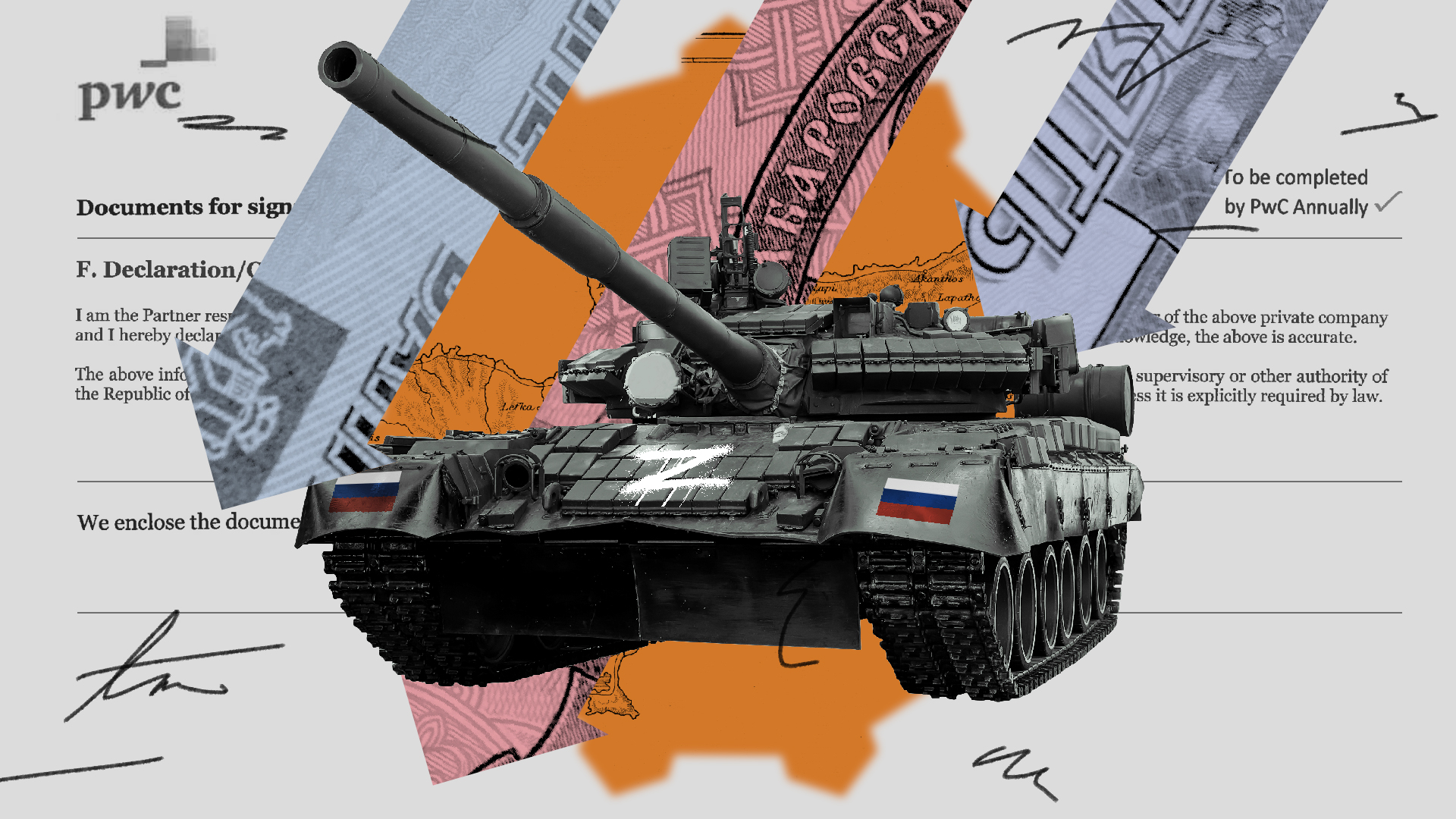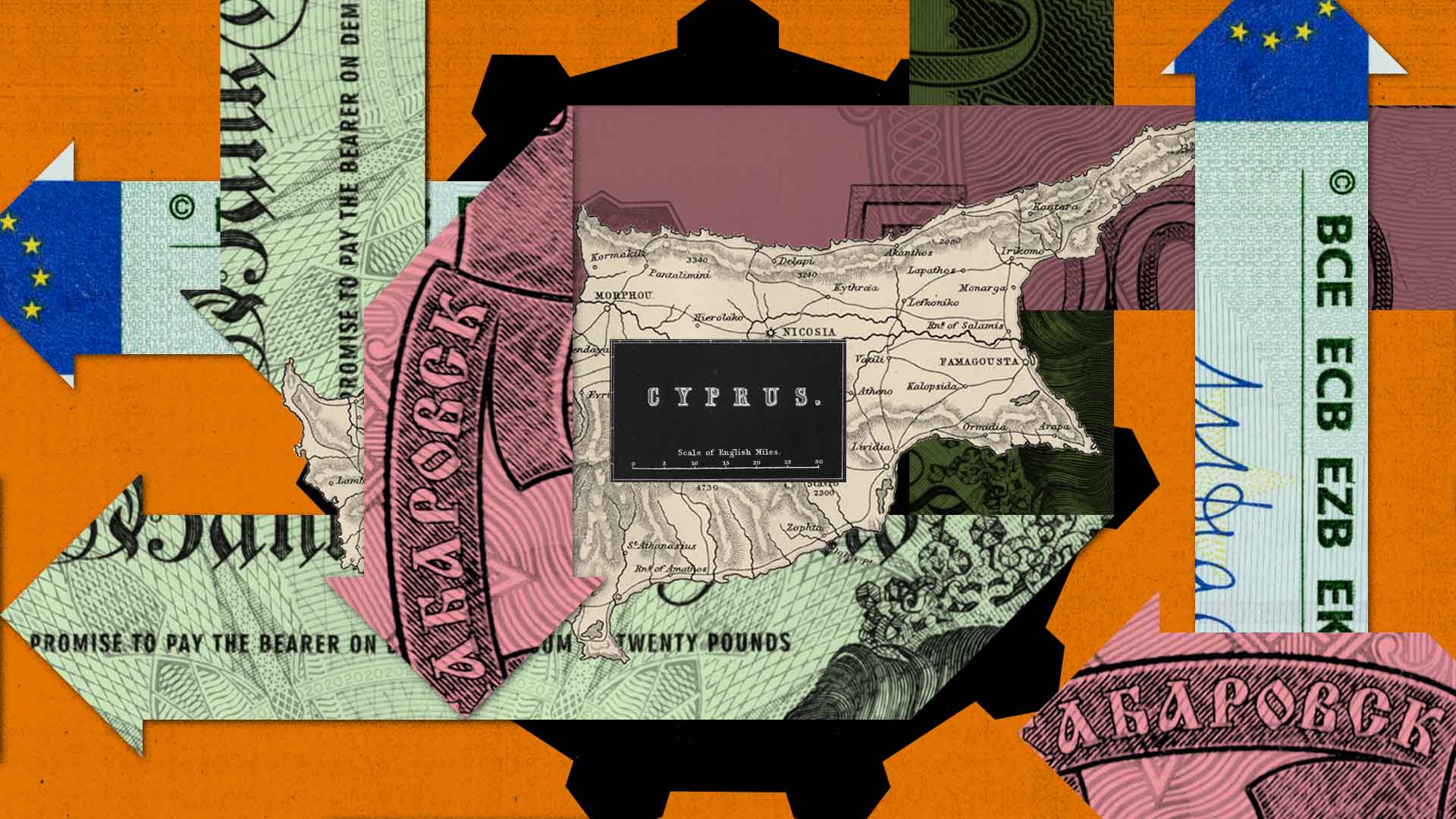AUDITORS
Beyond Cyprus, PwC has weathered a decade of global probes and scandals
The global accounting and auditing firm has featured in multiple ICIJ investigations, as well as legal and ethical dustups around the world.
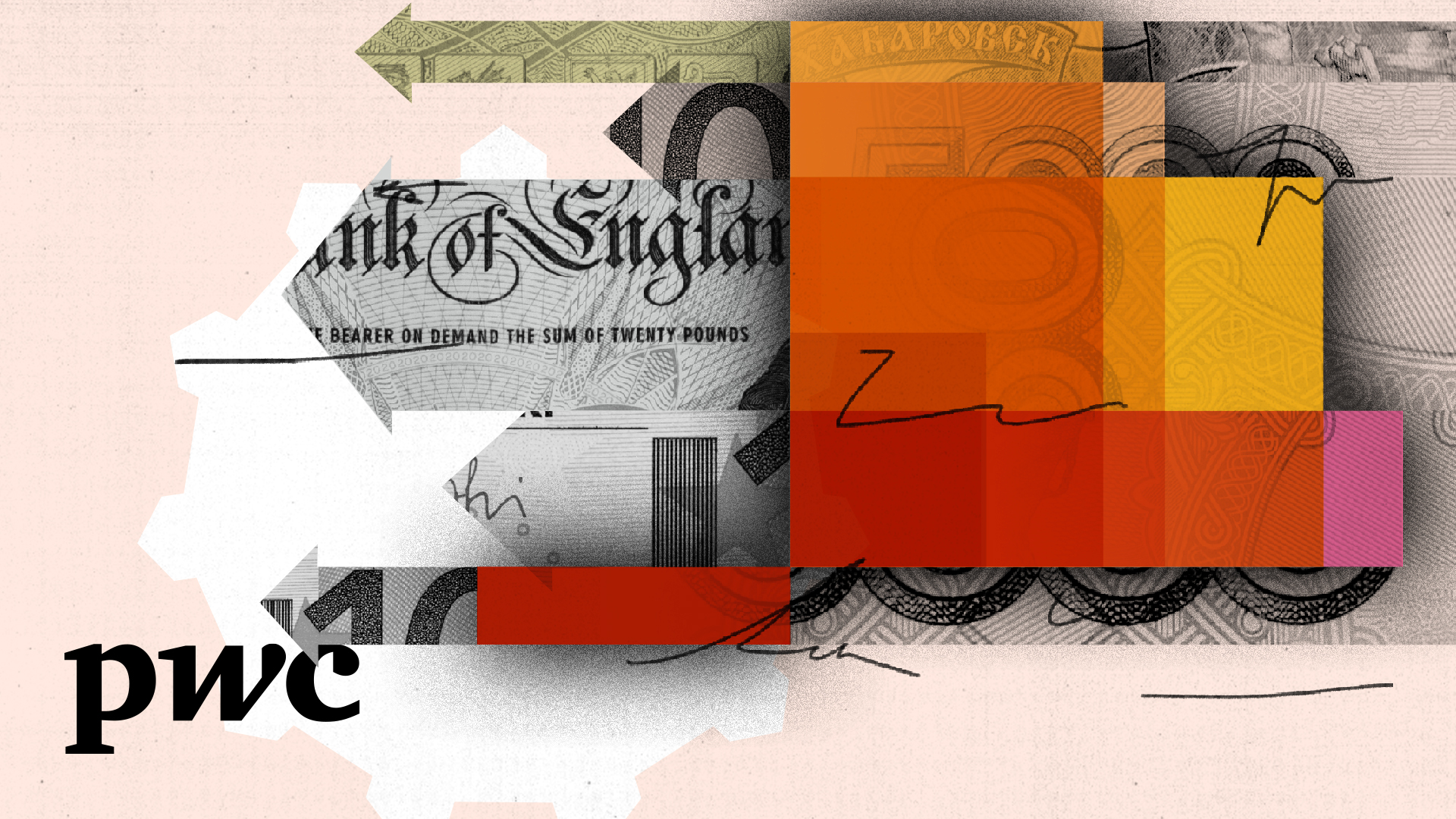
Over the past decade, the global accounting giant PricewaterhouseCoopers, or PwC, has become entangled in a series of scandals, government probes and media exposés relating to the cross-border movements of wealth linked to autocratic regimes, oligarchs and tax-avoiding mega-corporations.
Many of the exposés have been unearthed by the International Consortium of Investigative Journalists and its media partners around the world. Most recently, in the Cyprus Confidential investigation, ICIJ uncovered the role of PwC’s Cyprus affiliate and related firms in managing the wealth of some of the oligarchs closest to Russian President Vladimir Putin.
In a statement in response to Cyprus Confidential revelations, PwC said that the firm aims to uphold “the highest professional standards” across its entire network, and that the firm updates those standards to reflect “changing circumstances,” including following the Russian invasion of Ukraine.
“All PwC firms, including PwC Cyprus, take the application of sanctions against clients and sanctions prohibiting various professional services extremely seriously,” the firm wrote. “Any allegation of non compliance with applicable laws and regulations is taken very seriously, investigated and appropriate action is taken if necessary.”
Beyond the most recent Cyprus Confidential revelations, previous scrutiny around PwC has sometimes involved allegations of illegal practices, or focused on transactions that may be lawful but revealed the firm’s work for clients who use their power and influence in ways that exacerbated global wealth inequalities and harmed democratic societies.
Here’s a brief timeline highlighting some of the most prominent of PwC’s legal and ethical dustups in recent years:
Helping tax and sanctions dodgers
In April 2014, a U.S. Senate investigation detailed how PwC helped the American heavy equipment maker Caterpillar Inc. shuffle $8 billion in profits from America to Switzerland, reducing the equipment maker’s U.S. tax bill by $2.4 billion. When officials at the firm became worried the tax structure might be vulnerable to legal challenge, one PwC partner wrote to another: “What the heck. We’ll all be retired when this … comes up on audit. … Baby boomers have their fun, and leave it to the kids to pay for it.” During his Senate testimony, the partner said his comment had been an inappropriate “attempt at humor.”
In August 2014, state banking authorities in New York hit PwC with a $25 million penalty and a two-year suspension from its regulatory advisory group taking certain consulting engagements with banks regulated by the state. New York authorities said PwC had given in to pressure from the bank to water down a report to regulators regarding questionable transfers of cash through the Bank of Tokyo-Mitsubishi UFJ Ltd. on behalf of sanctioned Sudanese, Iranian and Burmese parties.
In one example, regulators said, PwC deleted a section revealing the bank had used hashtags and other “special characters” to prevent digital filters from flagging wire transfers involving sanctioned nations. “SUDAN,” for instance, became “SUD#AN.”
In a statement at the time, PwC said its report “disclosed the relevant facts” and that the firm was “proud of its long history of contributing to the safety and soundness of the financial system.”
LuxLeaks exposes aggressive corporate tax avoidance
In November 2014, an ICIJ investigation revealed that PwC had helped FedEx, Pepsi and hundreds of other big companies secure secret deals from authorities in Luxembourg, allowing many to slash their global tax bills while maintaining little presence in the small European duchy.
ICIJ’s Luxembourg Leaks investigation drew on a cache of confidential documents that revealed how PwC had negotiated secret tax rulings — sometimes known as “comfort letters” — that allowed companies to move profits to low-tax Luxembourg from higher tax countries where they were headquartered or did lots of business.
The records show, for example, that PwC helped FedEx set up two Luxembourg affiliates to move earnings from its Mexican, French and Brazilian operations to FedEx affiliates in Hong Kong.
“Profits moved from Mexico to Luxembourg largely as tax-free dividends,” ICIJ reported. “Luxembourg agreed to tax only one quarter of 1 percent of FedEx’s non-dividend income flowing through this arrangement — leaving the remaining 99.75 percent tax-free.”
PwC said at the time that its tax advice and assistance are “given in accordance with applicable local, European and international tax laws and agreements and is guided by a PwC Global Tax Code of Conduct.” It rejected “any suggestion that there is anything improper about the firm’s work.”
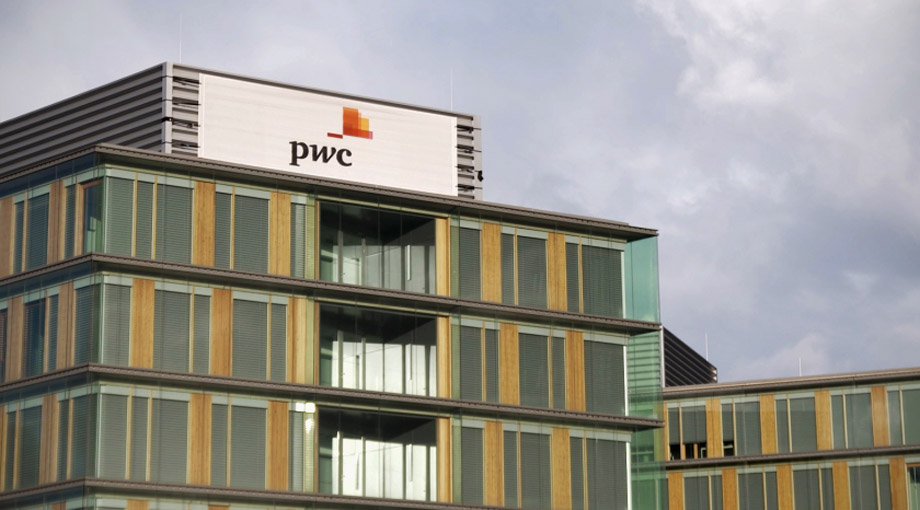
Politicians take aim after Paradise Papers
In November 2017, PwC’s tax advice for private equity group Blackstone caught the ire of British politicians after it was exposed as part of ICIJ’s Paradise Papers investigation.
Blackstone commissioned PwC to advise on a 2011 London property deal worth hundreds of millions of dollars, and the accounting firm suggested numerous ways Blackstone could use various tax havens and loopholes to avoid a transfer tax on the purchase, reduce its tax bill on rental income, and more, according to reporting by The Guardian, an ICIJ media partner.
Until advisers are hauled to account and properly punished for inventing schemes that are purely aimed at avoiding tax, the army of lawyers [and] accountants will continue to prosper — British lawmaker Margaret Hodge
The structures and maneuvers were all legal and compliant with relevant laws and tax rules, a point which both PwC and Blackstone reiterated in their responses to the revelations.
But that didn’t stop British politicians from criticizing PwC and other accounting firms whose work was exposed by the Paradise Papers. “Until advisers are hauled to account and properly punished for inventing schemes that are purely aimed at avoiding tax, the army of lawyers [and] accountants will continue to prosper,” lawmaker Margaret Hodge told the U.K. parliament at the time.
Enabling Isabel dos Santos
In January 2020, ICIJ’s Luanda Leaks investigation revealed that PwC had been a key adviser and enabler for the business empire of Isabel dos Santos, an Angolan billionaire who had been dogged for years by reports of widespread corruption.
Confidential records show that PwC provided services to enterprises controlled by dos Santos — the daughter of Angola’s autocratic former president José Eduardo dos Santos — long after other Western firms and banks refused to work with her.
Among the world’s “Big Four” accounting firms, “PwC played the biggest role in the dos Santos empire, providing accounting and auditing services to companies linked to dos Santos and her husband in Malta, Switzerland and the Netherlands,” ICIJ reported. “PwC also gave tax and financial advice to Angolan businesses owned or partly owned by the couple. Firms in PwC’s global network billed more than $1.28 million for this work between 2012 and 2017, an ICIJ analysis found, including more than $900,000 charged to companies incorporated in the offshore financial center of Malta.”
In response to Luanda Leaks, PwC said it had “taken action to terminate any ongoing work” for entities controlled by members of the dos Santos family. It said it worked to “maintain the highest professional standards at PwC and have set expectations for consistent ethical behaviour by all PwC firms across our global network.”
Ties to a Russian oligarch
In 2022, in the wake of Russia’s invasion of Ukraine, ICIJ used documents from the Pandora Papers investigation and previous reporting collaborations to shine a light on how PwC had helped a holding company tied to Russian steel magnate Alexey Mordashov create and administer more than 65 shell companies in the British Virgin Islands and other secrecy jurisdictions.
“The secret records . . . show these offshore companies engaging in transactions that moved large sums of money around the world in murky and suspect ways,” ICIJ reported. “These include at least four transactions involving companies linked to one of Russian President Vladimir Putin’s closest associates — deals that raise questions about Mordashov’s claims that he doesn’t have deep ties to Putin.”
Mordashov was one of a large number of Russian oligarchs who were sanctioned by the European Union and the United Kingdom in response to Russia’s attack on Ukraine. Mordashov’s main company, Severstal, has been one of the country’s largest steel producers — making steel for, among other things, armored vehicles and submarines for the Russian military.
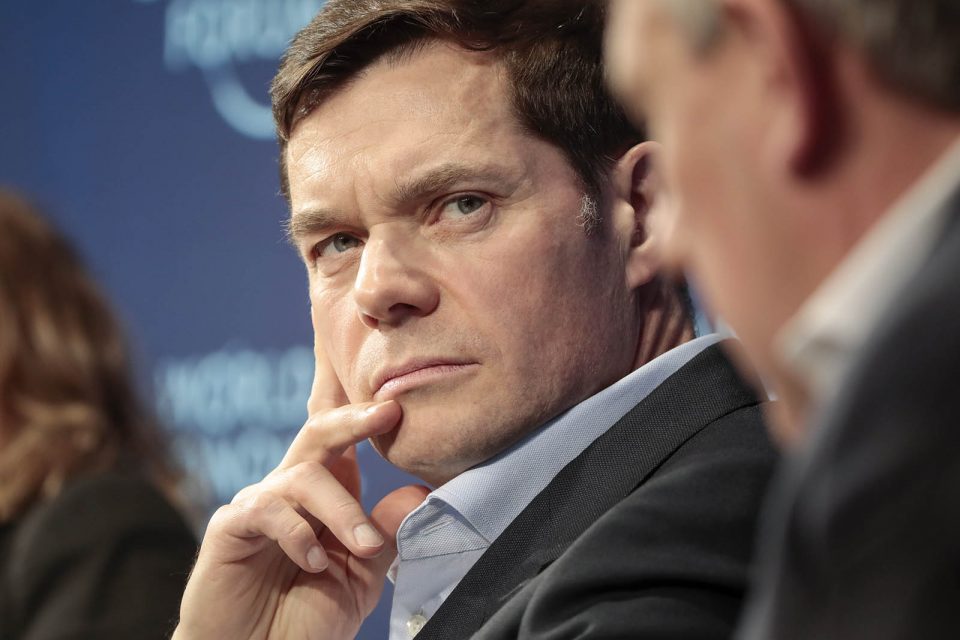
Mordashov did not respond to ICIJ’s questions at the time. In a statement, a spokesperson for the firm wrote that PwC was, at the time, “in the process of exiting relationships with sanctioned individuals, sanctioned entities and entities controlled by sanctioned individuals.”
Following ICIJ’s investigation, last June, in a resolution titled “Lessons learnt from the Pandora Papers and other revelations” the European Parliament raised concerns about PwC’s role “in assisting Russian oligarchs with their investments in the West through their networks of offshore shell companies.” “Such networks may be hindering the application of EU sanctions on Russian individuals,” the European officials wrote.
PwC’s Australian tax leak scandal
In 2023, several senior leaders at PwC Australia — including the company’s CEO — stepped down in the wake of revelations that a PwC tax partner had shared confidential information about the Australian government’s tax reform plans with other partners and staff at the firm.
The misconduct was exposed earlier this year, after Australia’s Tax Practitioners Board deregistered the partner in December 2022. Since then, a series of revelations in legislative hearings and in stories by the Australian Financial Review (AFR), an ICIJ media partner, have sent PwC’s global leadership scrambling to contain the fallout.
AFR reported that both Uber and Facebook — following PwC’s advice — established new company structures just before a multinational tax avoidance law came into effect in Australia at the beginning of 2016. According to AFR, the Australian tax officials were surprised at the speed with which companies were able to restructure to sidestep the new law.
The PwC scandal just proved to middle Australia that the game is rigged, that the big end of town have it sewn up — Australian media commentator
PwC Australia said the company’s clients weren’t involved in any wrongdoing and that no confidential information was used to enable clients to slash their tax payments.
Despite the firm’s PR offensive and even the fire sale of PwC Australia’s entire government consulting arm for just $1, PwC’s scandal in the country has refused to go away. “The PwC scandal just proved to middle Australia that the game is rigged, that the big end of town have it sewn up,” one Australian commentator wrote in September.
